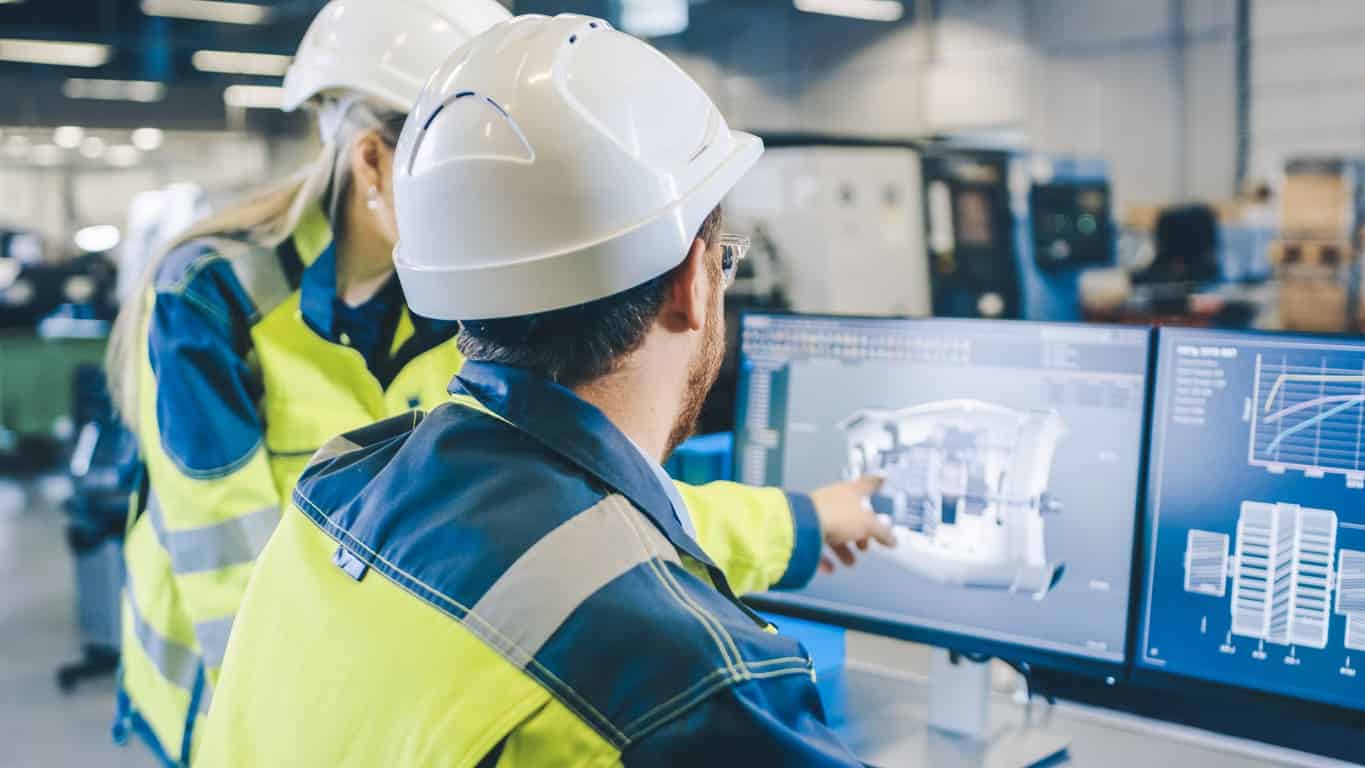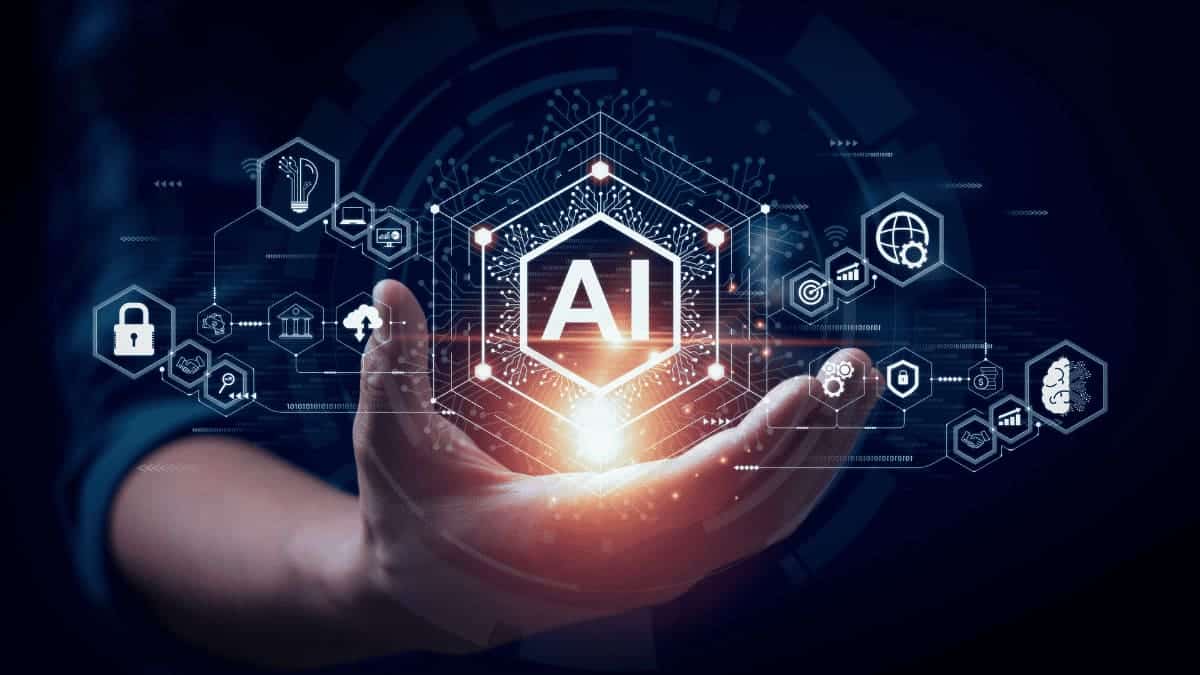How Will You Know When Manufacturing’s AI Revolution Arrives? You May Not.
AI is revolutionizing manufacturing by optimizing processes, enhancing robotics, and streamlining operations.


Want to experience the power of AI? Go prompt a generative AI engine to write you an email, build you a PowerPoint, or create imagery from scratch.
Want to experience the power of AI within manufacturing? That’s going to be a little trickier.
After all, there are only so many back-office jobs within this industry that require the sort of creativity and content production that has given ChatGPT and others its notoriety.
That doesn’t mean manufacturing isn’t set to benefit from artificial intelligence. AI is already having a tremendous impact on manufacturers across the U.S., and most analyses put it among the industries that will experience the most benefit from AI.
Hard to imagine, considering what so many of us think of when we hear the phrase artificial intelligence. But in fact, AI is already very much a part of manufacturing and will only become more entwined in the near future. Let’s dive into how.
AI In Robots, ERP, And Beyond
Here’s the truth: The age of AI in manufacturing is already here, even if many manufacturing employees haven’t noticed much change. That’s because the technology will mostly be introduced to manufacturers via the technology they already have in place.
Take a standard enterprise resource planning system, for example. ERP providers are rapidly installing AI into their systems. They’re introducing AI tools that help streamline the sales process and provide deeper customer analytics and insights. Some use cases are industry-specific, built as solutions to specific problems. Others are as simple as introducing AI assistants and chat tools that help users rapidly query a wide range of data and find the information they’re looking for.
And then there are collaborative robots, that form of robotic automation that works hand-in-hand with humans along an assembly line. Human-created algorithms provide the foundation for these machines, but increasingly, developers are finding ways to improve their productivity through AI. That means allowing an AI engine to observe a cobot’s actions, learn how it works, and suggest tweaks to the machine’s processes that may improve the manufacturer’s operation.
For that matter, there are many optimization tasks where empirical learning by a computer will lead to better processes than what humans can pull off today without AI. Computers are much more adept at measuring the last 1,000 or 1 million times something has been done and understanding what went wrong, what went right, and how things could be improved going forward.
Eventually, that continuous optimization loop will take place without human intervention. Cobots on our manufacturing floors will pick up on things and modify their behavior to be more efficient without human engineers stepping in to reprogram.
AI, too, will get better and better at telling us when a machine does require human involvement. Fueled by sensors feeding information to an AI engine, predictive maintenance will allow our companies to pinpoint upcoming maintenance needs before they occur, thereby decreasing machine downtime and saving money.
Beyond creating efficiencies, there’s a more global upside that AI in manufacturing presents. Our systems will be better equipped to interact with the systems of vendors and other companies, understand the availability and timing of certain materials, and provide clearer timelines. Over time, we’ll be able to more accurately forecast how long it takes to create certain products and get them out the door to customers or to the next vendor along the supply chain. We’ll improve the way we think about supply and demand. And it will all feed into a more powerful, efficient, and resilient supply chain.
Manufacturers Can Likely Use AI More Than They Are
All that said, there are ways manufacturers can take a more intentional approach to using AI today. It’s likely that most manufacturers have not fully explored the technology.
ChatGPT can help companies create marketing copy, blog posts, emails, and white paper drafts with much greater efficiency. It can also help find suppliers—Gen AI trained on the entire internet will be able to easily locate information that a simple Google search won’t quickly produce. Some companies have begun experimenting with ChatGPT to write code, while others are using it to speed up the process of formulating contracts and completing other tedious paperwork.
A major hurdle for the technology, of course, is cybersecurity. Anything entered into ChatGPT could theoretically make its way into the public, of particular concern for sensitive data like vendor contracts. Over time, we’ll overcome those hurdles, and AI will make manufacturers’ lives easier. Of course, it won’t revolutionize the industry—only bring incremental improvement.
AI Won’t Fundamentally Reshape Manufacturing—But It Will Enable Future Innovation
Over the next decade, AI will be doing everything from creating dynamic content to driving cars to, very likely, assisting medical diagnoses. On its face, it may be difficult to grasp how our industry stands to benefit as much as some of the others. Contrary to what will happen in some other industries, AI won’t fundamentally reshape manufacturing.
Instead, it will make so much of what we already do better. Our cobots will self-optimize. Our machines will alert us when they require maintenance. Our ERP systems will be well-oiled machines, connected and communicating with others to optimize timing and production. And, yes, our back offices and development teams will be enhanced through the magic of AI-powered content creation.
That will all have the effect of creating an industry prepared to innovate. We already know that the U.S. won’t be able to compete on certain products with countries where labor costs are low. Our goal is not to retake everything we outsourced to China over the last 20 years. But it should be to lead the world in manufacturing innovation, so that, through technology, companies here are able to do more with less and become more competitive. With AI, that future is there for the taking.
This article was written by Ethan Karp from Forbes and was legally licensed through the DiveMarketplace by Industry Dive. Please direct all licensing questions to legal@industrydive.com.
Best of the Month. Straight to Your Inbox!
Dive into the best content with our monthly Roundup Newsletter!
Each month, we handpick the top stories, insights, and updates to keep you in the know.